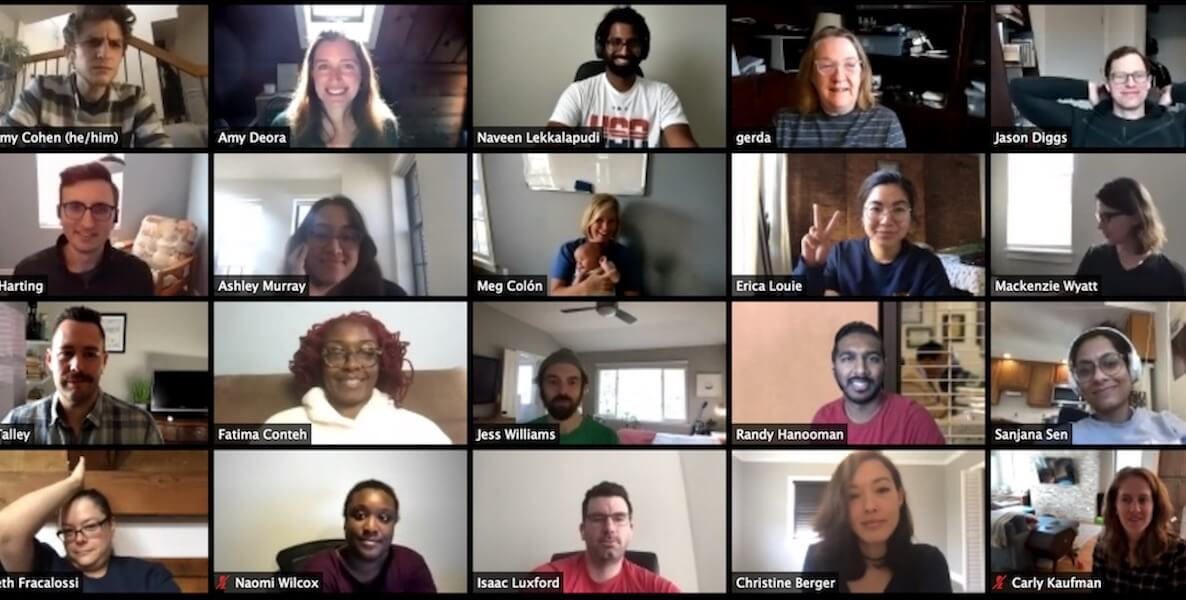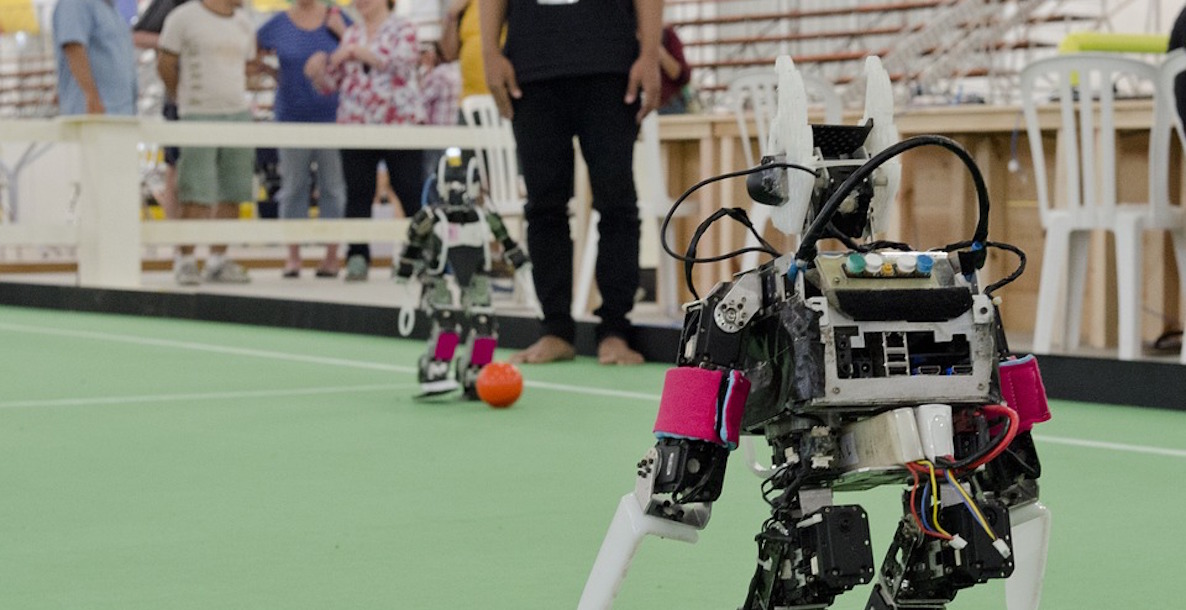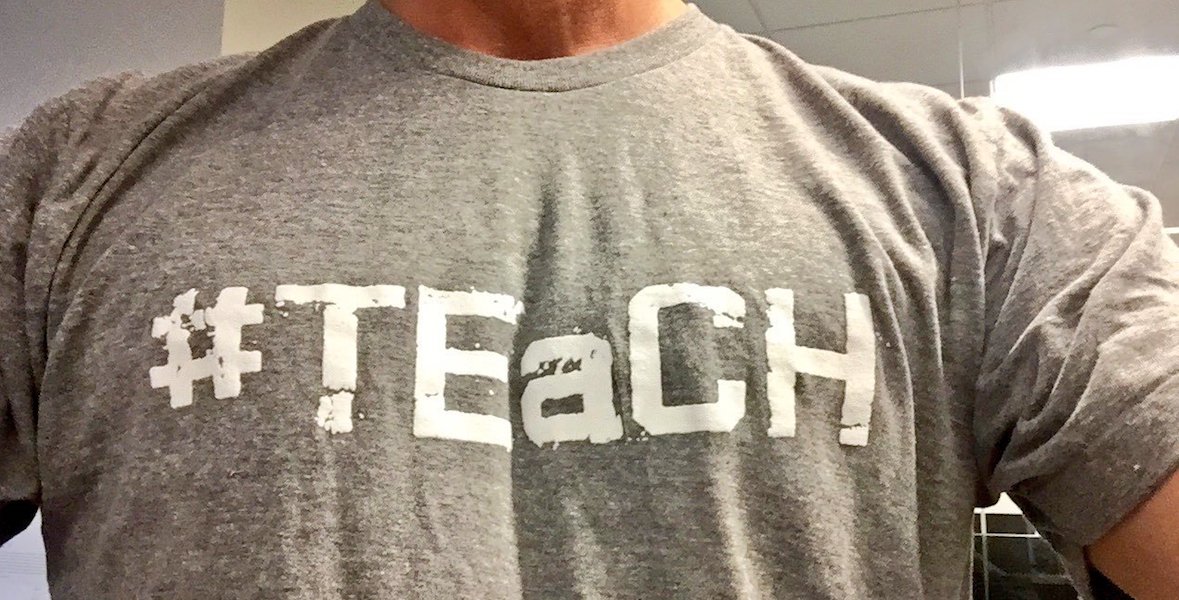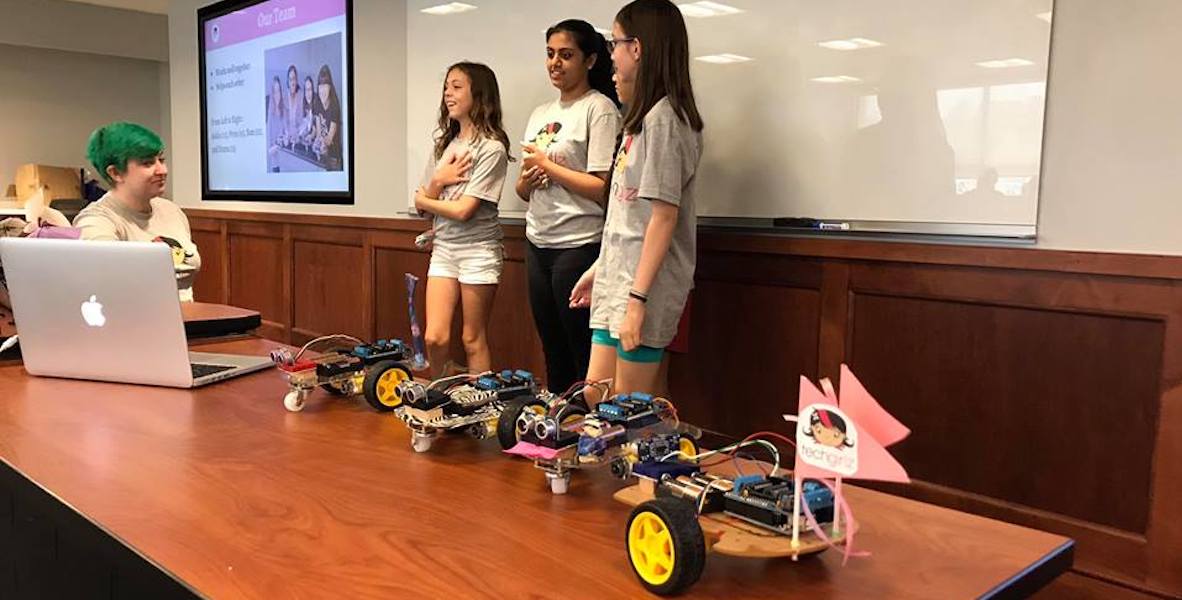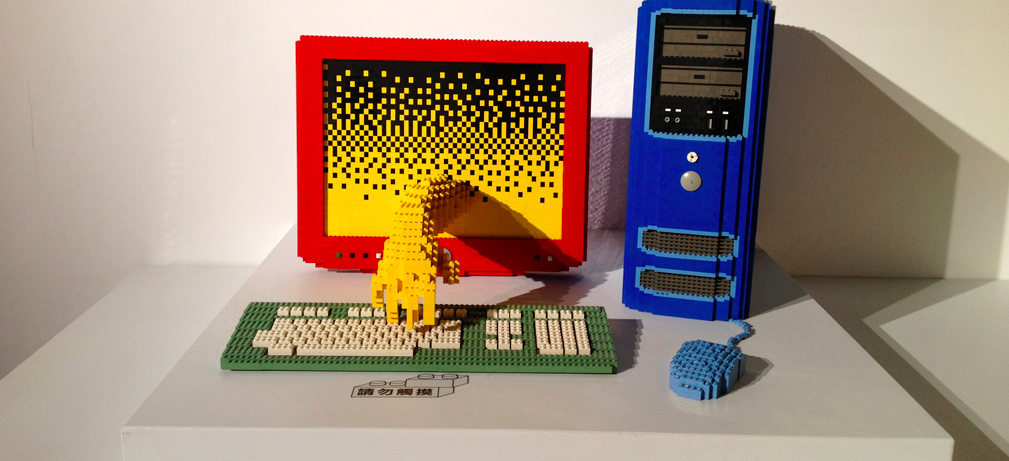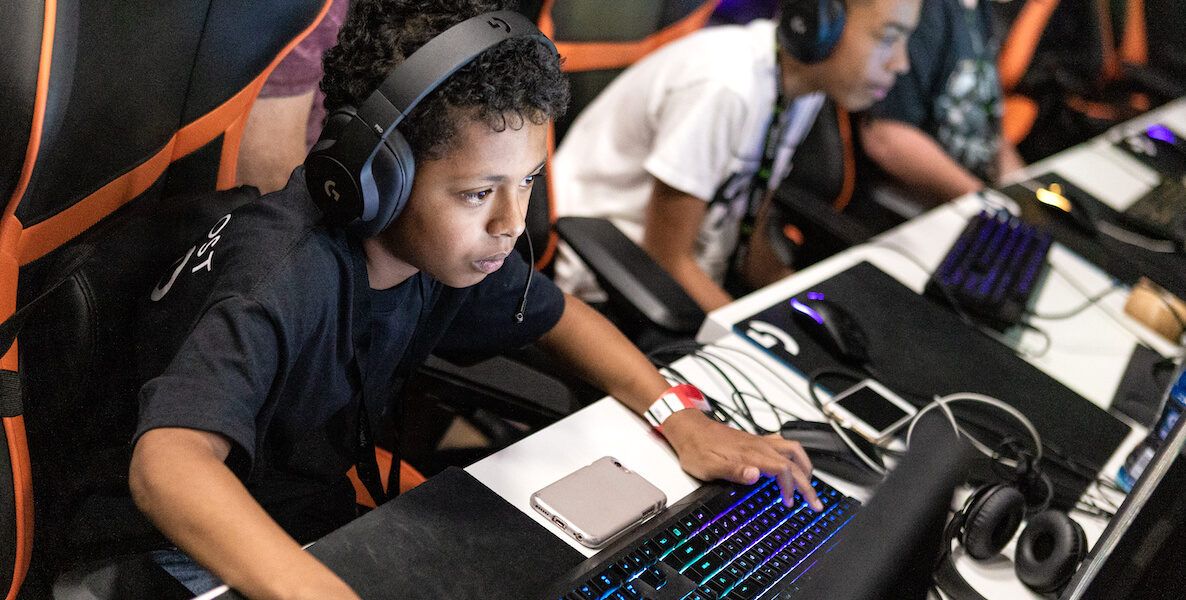Loyal fanbases. Millions of viewers. International audiences. Life-changing prize pools for top players. That’s the everyday reality of . . .esports?
But: What even are esports? And how did something that sounds like a tweenage basement hobby become a billion-dollar industry, and a driver of business and entertainment in Philly?
Esports, defined
For the uninitiated: “Esports” refers to competitions using video games, often taking shape in the form of organized, multiplayer tournaments. Its roots can be traced to a video game competition held at Stanford University in 1972, and its popularity has only grown as the number of people who play video games has increased and the prize pools, paid out mostly by game developers, private sponsors and merchandise and ticket sales, have grown to millions of dollars.
And video gaming is no longer a hobby exclusively enjoyed by the young; as generations have grown up with video games, the average age of gamers has also increased. As of 2020, 38 percent of video game players are 18 to 34—and six percent are 65 years and older.
Much of the gaming world in America is concentrated on the West Coast, where many of the global headquarters of gaming companies and development studios are located—but Philly has become an East Coast hub, with investments from Comcast Spectacor and Philly Esports fueling a robust competitive gaming scene.
And since 2017, Philly has been home to Nerd Street Gamers, a community-minded business with a mission to provide opportunities in esports that parallel the way traditional sports can bring educational and professional opportunities to conventional athletes.
“What we’re trying to do is build up that infrastructure for esports and provide tangible opportunities, whether it’s through [coaching] high schoolers to an amateur career or scholarship in college, or [opening up] professional opportunities in marketing, broadcasting or becoming a pro gamer,” says Paige Funk, vice president of marketing at Nerd Street Gamers.
Despite having to shut down its in-person gaming for the last year, Nerd Street is growing through a new subscription service and is preparing to open a new in-person facility on North Broad Street. And last month, the company secured $11.5 million in funding from San Francisco-based venture capital firm Founders Fund, bringing the company’s total funding to approximately $25 million.
Stepping up their game
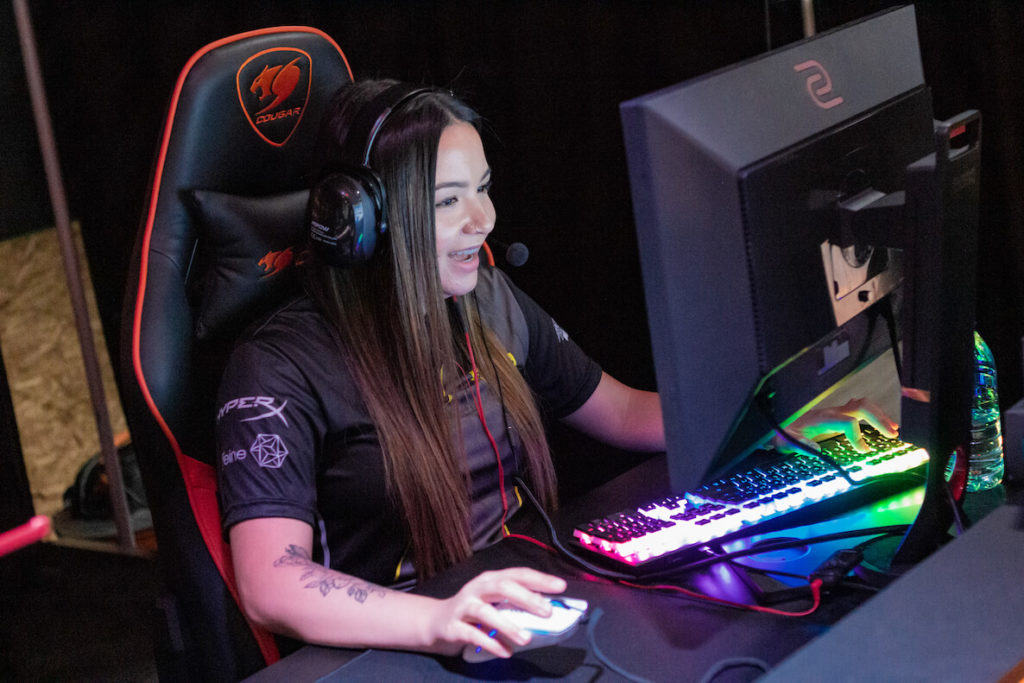
Since its official launch in 2017, the goal of Nerd Street Gamers has always been to empower competitive video game communities by providing resources for them to grow their skills as gamers and progress their professional careers.
Founded by entrepreneur John Fazio, who is currently Nerd Street’s CEO, what started as a gaming venue has become a full-service company providing gaming equipment, tournament administration and broadcast services to gamer communities in the city and beyond.
Comcast has made big bets on the future of the industry, establishing an esports team called Philadelphia Fusion—and announcing plans to build a $50 million esports arena in South Philly.
Fazio, who grew up in the Philly suburbs, has been interested in both sports and computers since he was young, playing semi-professional soccer and starting various computer and software development companies as a teenager. In 2006, when he was 17, he first visited a “LAN center,” the industry term for a gaming facility, where a video game competition was being held.
Fazio noticed the similarities between esports and traditional sport competitors—the countless hours of training and the need to maintain physical and mental health—but recognized the disparity of opportunities between video gamers and other athletes. Whereas traditional athletes might compete for scholarships or professional opportunities, gamers competed mostly for fun and small prize pools.
Soon after, he crafted a plan with Drexel University classmate Chris Alfano for what would eventually become a national network of esports facilities and events. But it would take a few years for those plans to come to fruition: Before starting Nerd Street Gamers, Fazio was a student at Drexel, where he played on the school’s Division I soccer team and in 2007 co-founded a web software engineering firm, Jarvus Innovations, with Alfano.
Fazio dropped out of Drexel after a year, but he continued to work at Jarvus, where he incubated the idea for Nerd Street. In the early 2010s, Fazio and Alfano invited friends and members of the local tech community to the Jarvus office for gaming parties. Eventually, Fazio saw the opportunity to step up his, ahem, game, and give life to the business plans he’d crafted back in 2006, to create a national network of everything they were essentially doing at the Jarvus office.
During that time, Fazio grew the company into a national brand. In 2017, SeventySix Capital invested in Nerd Street Gamers, making the scale of their branding plans possible. It was then when Fazio stepped in as the company’s CEO. Shortly after SeventySix Capital’s investment, other companies, like Comcast Spectacor and Five Below, also began to invest in the company, which further allowed the Philly-based organization to expand across the city and country.
Not your grandma’s Super Mario Bros.
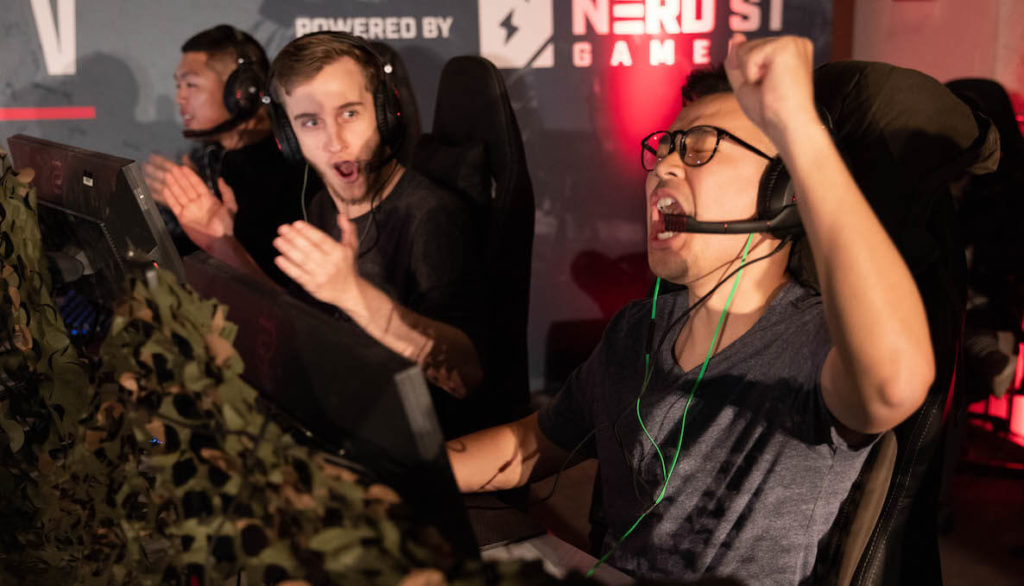
Esports’ ascendance has created lucrative opportunities for game developers, gamers, influencers and event organizers. In the United States, 175 colleges and universities are currently recognized by the National Association of Collegiate Esports and offer officially recognized varsity esports programs.
Just over 150 of them offer partial or full-ride athletic scholarships. And the collegiate esports organization Tespa has chapters at 314 schools across the United States and Canada, where members compete for scholarships.
Comcast, in particular, has made big bets on the future of the industry, establishing an esports team called Philadelphia Fusion—and announcing plans to build a $50 million esports arena in South Philly. (Comcast is also a supporter of The Citizen.)
Gamers, like those on the roster of the 76ers-owned esports organization Dignitas, compete in multiplayer games like League of Legends, Rocket League and Smite for thousands, sometimes millions, of dollars in prize money.
Unfortunately, as the world of esports has grown exponentially, it has also developed a reputation for its alienation and bullying of some participants.
According to the Anti-Defamation League, 74 percent of adults who play online multiplayer games in the U.S. experience some form of harassment while playing; 53 percent who experience harassment believe they were targeted because of their race/ethnicity, religion, ability, gender or sexual orientation.
And so, despite the fact that 41 percent of gamers are women and that LGBTQ people disproportionately play video games, these groups are more likely than others to receive derogatory comments while online, and face physical threats, stalking and doxxing, the compiling and publishing of personal information.
On top of cultural hurdles, there’s the financial barrier to entry: Video games, and the consoles and PCs that are needed to play them, are expensive, anywhere from $500 on up. And when colleges give out scholarships to support young players’ careers, nearly 90 percent of them go to men.
Some 74 percent of adults who play online multiplayer games in the U.S. experience some form of harassment while playing; 53 percent who experience harassment believe they were targeted because of their race/ethnicity, religion, ability, gender or sexual orientation.
In Philly, where access to broadband internet in some neighborhoods is among the lowest in the country and nearly half of school-aged children don’t have access to a computer at home, breaking these cultural and technological barriers—and making sure the opportunities in a growing industry are accessible for all—is not an easy challenge.
Nerd Street Gamers’ approach to bringing equity to esports, prior to the pandemic, focused largely on bringing the virtual gaming world to physical, real-world places. If so much of the harassment that gamers and streamers face comes from online trolls, the company reasoned, then removing that layer of anonymity would create spaces where people could come together and play video games without hateful, often anonymous, comments or threats. And for those who lacked the equipment or adequate internet connection, in-person programming and hourly rentals, at a rate of $5 per hour, lowered the cost of entry into esports.
The programs and events took place at Nerd Street’s Localhost sites. Its first Localhost opened in Philly on 908 N. 3rd Street—hence Nerd Street Gamers, the play on N-3-R-D—in Northern Liberties, with ample space for events and tournaments and top-tier rental gaming and streaming equipment. The company now has nine other locations and partnerships throughout the country. A forthcoming center, dubbed The Block, is being constructed at 401 N. Broad Street.
At Rowan University, where the school runs one of the largest collegiate esports programs in the region and undergraduates can earn a certificate in Esports Industry and Entertainment Experience, Nerd Street Gamers partnered with the university to open a “team room,” with a broadcast studio for livestreaming.
Facilities like this are typically only accessible to a school’s esports club, team, or academic program and are often used as a recruitment tool for potential students—the same way a state-of-the-art gym would be used to draw in student athletes.
While accessible gaming is at the center of each of Nerd Street’s LAN centers, the hope is that they provide a gateway to those tangible opportunities, like college scholarships, or a career as an esports commentator.
“A lot of what we are doing is providing a platform for these individuals to not only gain skill sets, but to essentially be put on a bigger stage,” explains Todd Berman, vice president of media at Nerd Street Gamers. “I believe esports provides a real opportunity for careers in sports and journalism.”
Not everyone who goes through Nerd Street’s facilities and tournaments will sign to a professional organization or become professional gamers. Many will find their own niche, like coaching or content creation. But some will: After placing first in a women-only tournament organized by Nerd Street Gamers, Spectacor and Riot Games—publisher of Valorant, another battle game—four North American women were recruited by esports organization Cloud9 to form the first all-women Valorant team.
A multifaceted business model
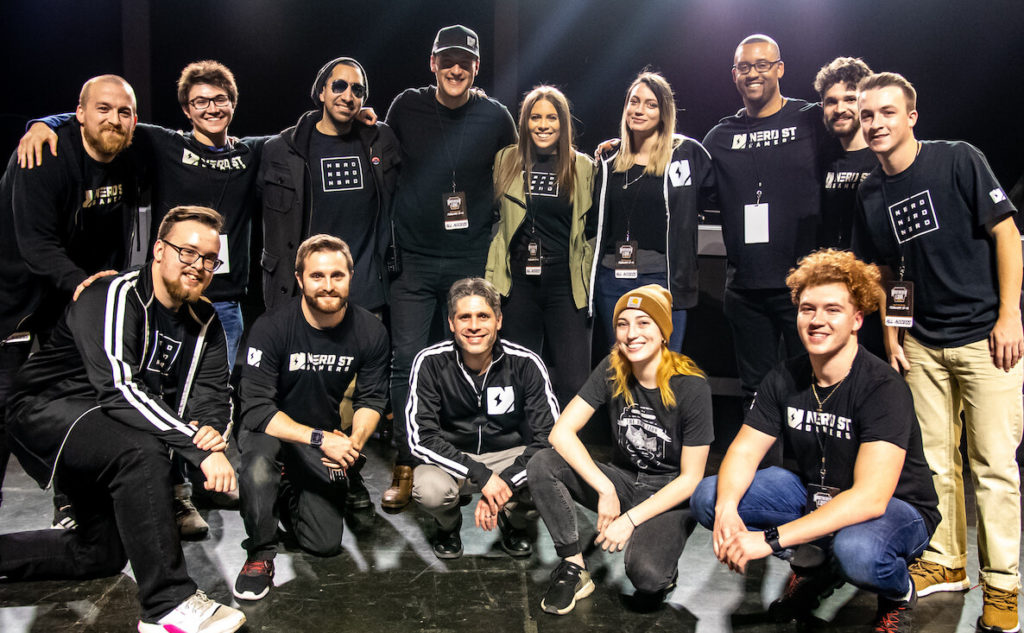
Despite many of Nerd Street Gamers’ LAN centers closing for the majority of the past year due to the pandemic, the company has seen significant growth in its funding, and in its number of active customers.
The company projects that they’ll continue growing in the coming years, even if it’ll be a few more months until their retail stores can fully reopen. And that’s largely because their revenue primarily comes from programming—tournaments, camps, coaching and content creation—that can be done remotely.
Their online membership has increased by more than 218 percent since 2019 and their Twitch channel, where the company livestreams games and tournaments, grew from 13,000 followers to more than 218,000.
“We’re trying to set up the ecosystem that soccer has [built] over the last 100 years; we’re trying to do it in five,” Schlegel says.
In November, the company joined the growing ranks of esports organizations—like Cloud9 and Envy—and announced a subscription service for gamers of all skill levels. Called “Nerd Street+”, the subscription service costs $20 a month for in-person venue perks, while a digital-only option is available for $5.
Going forward, the company plans to continue its online growth as it continues to reopen its facilities, through a hybrid model that will allow esports players to compete in-person while fans watch at home. Construction also continues at facilities in Philly and in Los Angeles and at several smaller localhost sites.
Ben Schlegel, vice president of events at Nerd Street Gamers, emphasizes that Nerd Street+ is just a small part of the ecosystem that the company is trying to create: “We’re trying to set up the ecosystem that soccer has [built] over the last 100 years; we’re trying to do it in five,” he says.“We want to be a thought leader in this space and let people know that esports is here to stay.”
Correction: A previous version of this piece misspelled LAN center(s).
A child plays at a Nerd Street Gamers Summer Championship | Photo by Austin Wright


